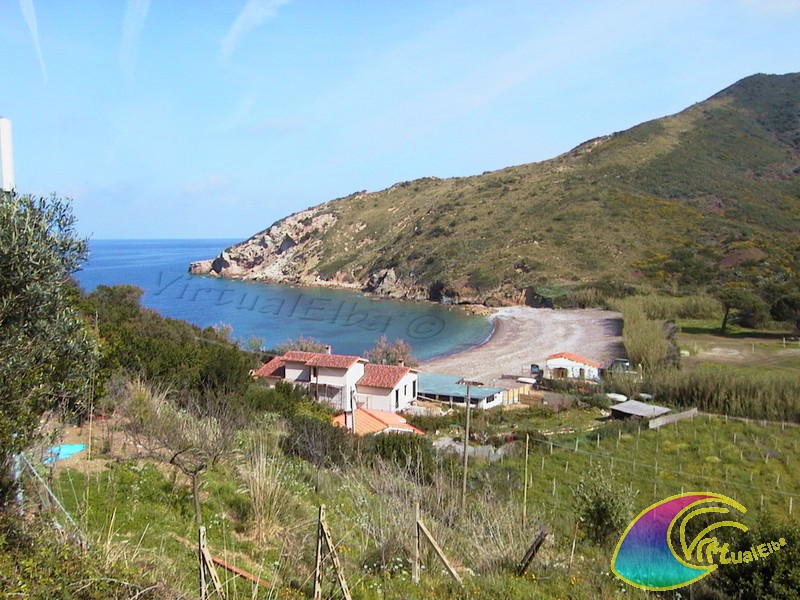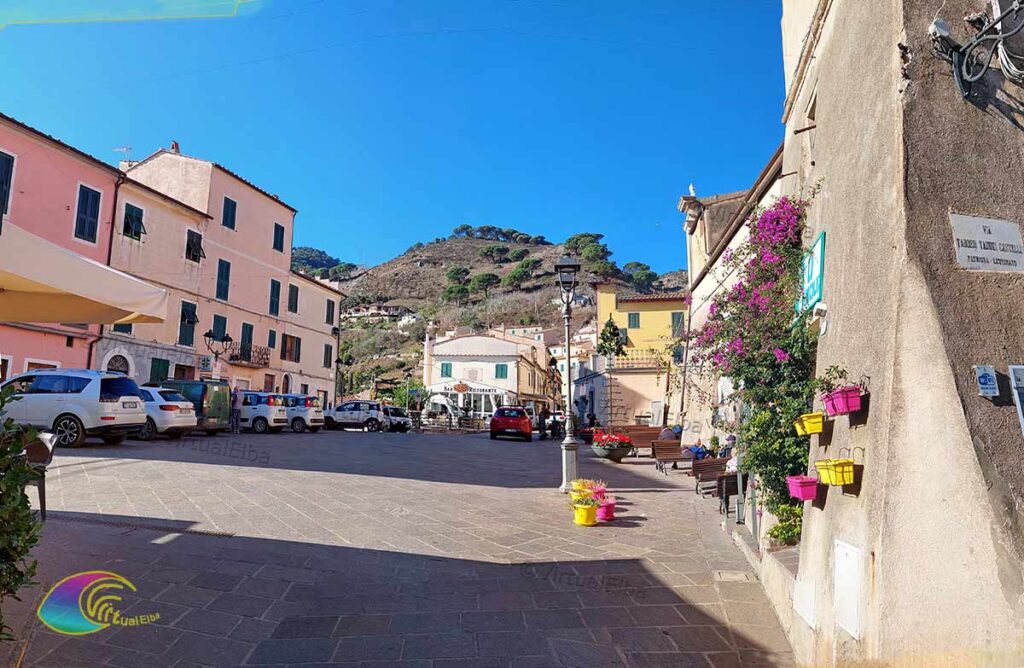It is believed that Rio Elba was the first town to be inhabited on the island and that it exploited the mining veins already in the Neolithic period, as evidenced by some findings in the cave of S. Giuseppe. Just above the town, on the road that crosses Monte Volterraio (Alt 350m), we will be able to admire what remains of the homonymous Castle built in the 1000s on top of a rocky spur and appreciate a wonderful panoramic view over the bay of Portoferraio, spectacular in the sunset time. The nearest beaches are Nisporto and Nisportino at 4 km and Ortano at 2 km.



























The public wash house of Rio Elba
In this place, women gathered to socialize while washing clothes, and miners stopped for refreshment before returning home.
The Public Washhouse of Rio Elba , located in the part below the town, is enclosed in a large structure with a trussed ceiling and large windows. Over time, the wash house has undergone various transformations, while remaining in the same area.
Today the public wash house of Rio Elba is a destination for visitors who stop to admire the building and the source.
The Hermitage of Santa Caterina in Rio Elba
The Eremo di Santa Caterina (Rio Elba), is a centuries-old place of meditation and prayer probably dating back to the Romanesque period, but enlarged and remodeled in 1634. The its origin would be linked to a series of apparitions of the saint to a local boy, in memory of which, traditionally, every year, on the Monday after Easter, a feast is celebrated. Next to the complex, which today houses a cultural foundation and occasionally hosts exhibitions, the Orto dei Semplici was built.
The Volterraio Castle
The Fortress of Volterraio , located 394 meters above sea level on the mountain of the same name on the municipal border between Portoferraio and Rio Elba, dates back to the 11th century.
The origin of the name, perhaps derived from the Latin Vultur (vulture), can also be traced back to the provenance of the Volterra architect Vanni Gherardo Rau commissioned by the Pisans, who in 1231 (birth of the Volterraio Castle) began to fortify the fortress built around two hundred years ago.
In 1544 the fortress suffered the siege of Khayr al-Dīn and later, in 1553, by Dragut. The military architectural complex performed wide-range sighting functions along the northern coast of the Elba island and towards the facing sea.
The Church of San Giacomo e Quirico in Rio Elba
The church of San Giacomo di Rio Elba , was built during the Pisan dominion on the island and subsequently fortified with solid bastions, denounces its medieval origin, although today it appears modified by eighteenth-century restorations and rearrangements. Among the works preserved inside, the seventeenth-century canvas depicting the “Mystical Wedding of Saint Catherine”, attributed to Giovanni da San Giovanni, marble tombstones of illustrious characters from Piombino.
Streets of Rio Elba
Square of Popolo and San Giacomo Fortress Church








































